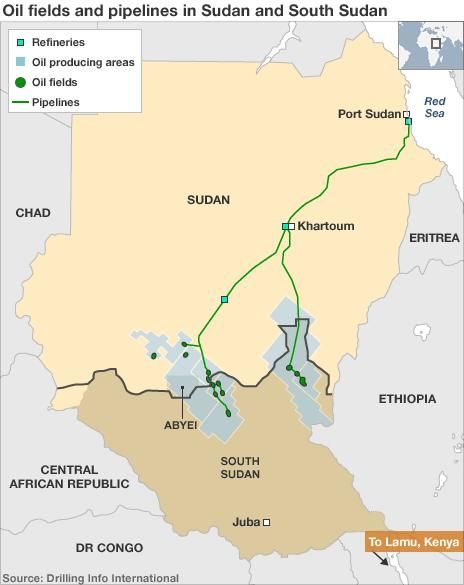In 2011, South Sudan gained independence from Sudan after an internationally monitored referendum making it the 54th independent African state and the 193rd United Nations member and by default the world’s newest country.
It shares borders with six countries namely the Central African Republic, Democratic Republic of the Congo, Ethiopia, Kenya, Sudan, and Uganda.
South Sudan does have abundant natural resources such as oil, fertile agricultural land, gold, diamonds, hardwoods, limestone, iron ore, copper, chromium ore, zinc, tungsten, mica, and silver. South Sudan's economic development is inextricably intertwined with oil. Oil accounts for 98% of South Sudan’s government revenue. Also, it has the 5th largest oil reserves of 3.75 billion barrels in Africa.
South Sudan offers huge potential as a major food-producing country. It lies in the South Upper Nile region which is one of Africa’s most fertile areas. More than 90% of South Sudan’s land is arable. It also has untapped water resources and large stocks of cattle and fisheries.
Most FDI in South Sudan is concentrated in the oil and gas sector. Other sectors that have attracted some investment include agriculture, mining, and infrastructure development. China, Malaysia, India, and Uganda are among the top countries investing in South Sudan.
According to the AfDB, South Sudan’s GDP is projected to grow by 4.6% in 2024, driven by increased domestic oil production and higher global oil prices.
Security Issues:
Corruption, poverty, ethnic violence, and cattle-related communal violence continue to hamper peace and stability. South Sudan is heavily dependent on Sudan its northern neighbor in terms of oil exports. It relies on pipelines that run through Khartoum to Port Sudan. With conflict ravaging in Sudan, a disruption in oil export can spell doom for Juba, one of the world's most oil-dependent countries.
Verdict:
For South Sudan to develop peace and stability is vital. On a national and individual level, a new conception of South Sudan one that fosters unity among the various ethnic groups should be developed. The creation of a national identity that blurs ethnic lines should be prioritized. Also, concrete measures should be made to ensure the full implementation of the Revitalized Peace.
Agreement to avoid a relapse of conflict. Significantly, the necessary legislation and institutions needed for the 2024 elections should be created without any further delay. The economy should be diversified to reduce the over-dependence on oil. Despite security challenges, there are enormous investment opportunities in the oil and agricultural sector.
